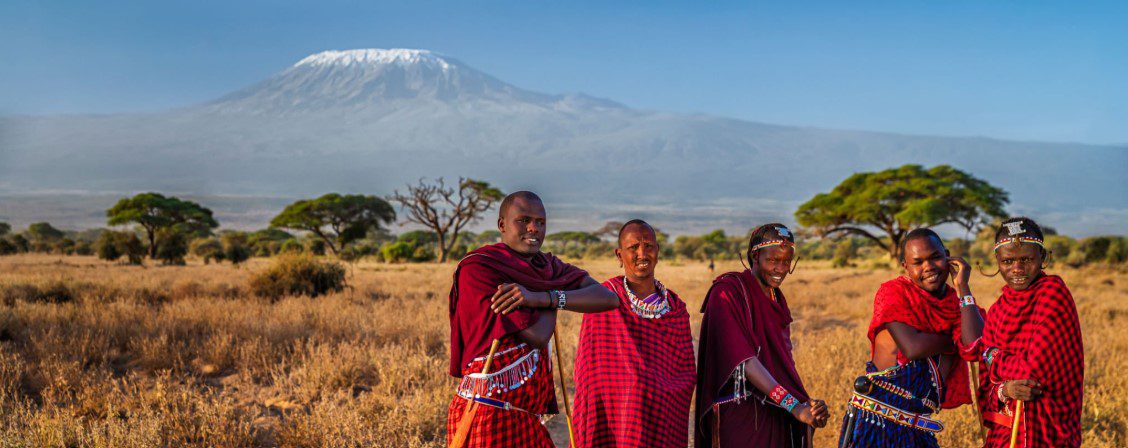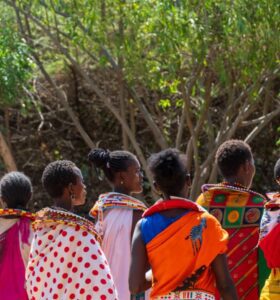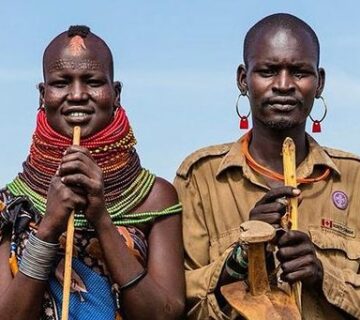What Are the Cultural Dos and Don’ts in Kenya?
Kenya, a country rich in cultural diversity, offers a vibrant mix of traditions, languages, and customs that reflect the spirit of its people. From the towering peaks of Mount Kenya to the golden savannas of the Maasai Mara, the beauty of Kenya is matched only by its deep cultural roots. Understanding the dos and don’ts of Kenyan culture is crucial for anyone planning to visit, live, or interact with the local communities. Embracing these cultural norms not only shows respect but also enriches your experience, allowing you to connect authentically with the people and the land.
Kenya is home to over 40 ethnic groups, each with their own distinct language, traditions, and ways of life. Whether you’re exploring the bustling streets of Nairobi, hiking in the lush forests of Central Kenya, or visiting a Maasai village in the rift valley, being aware of local customs will make your journey smoother, more meaningful, and respectful.
The Dos of Kenyan Culture
Greet People with Warmth and Respect
Kenya is a society where greeting others is a key part of daily life. It’s not just about saying “hello”; it’s about showing respect and acknowledging the presence of others. In many communities, greetings are extended in the local language. While Swahili (“Habari?” or “Jambo”) is widely spoken, each ethnic group has its own greeting rituals. For instance, among the Kikuyu people, you may hear “Wîhîî” as a way of greeting someone, or “Sopa” in Maasai communities. In Kenya, a handshake is common when meeting someone, and in some parts of the country, the handshake may be accompanied by a slight bow of the head, which is a sign of respect. Always be sure to greet with a smile, as it shows genuine interest and appreciation for the person.Dress Modestly
Kenya is a predominantly Christian country, but it also has a large Muslim population, especially along the coast. Dressing modestly is important, particularly in rural areas and in places of worship. Women should avoid wearing revealing clothes, and men should not wear sleeveless tops when visiting religious or formal locations. When at a Maasai or other tribal village, consider covering up your arms and legs to show respect for the local traditions. This simple act of modesty can make a big difference in how you are perceived and shows that you understand and respect the culture.
Respect Elders
Kenya places a high value on respect for elders. Whether it’s a family member, a community leader, or even someone you just meet, treating elders with reverence is a cultural norm. In many Kenyan communities, elders are seen as the custodians of wisdom, culture, and tradition. You will often hear the phrase “Mzee” (elder) used when referring to someone older. When interacting with elders, always use polite titles like “Baba” (father) or “Mama” (mother) as a sign of respect. It’s customary to stand when an elder enters the room or speaks, showing the highest respect.Be Punctual
While Kenyans may not always adhere to strict schedules, punctuality is still appreciated, especially in more formal settings like business meetings or social gatherings. If you’re invited to an event, it’s always a good idea to arrive on time, or at least close to the time. Being on time is seen as a sign of respect for the host and others attending the event. In some rural areas, time might be more fluid, but it’s still important to make an effort.Ask Before Taking Photos
While Kenya is an incredibly photogenic country, it is essential to ask for permission before taking photos of people, particularly in rural areas or tribal villages. In many Kenyan cultures, taking someone’s photo without their permission is considered rude or invasive. Always ask politely before snapping a picture, and if someone refuses, respect their decision. This consideration not only shows respect for their privacy but also their cultural beliefs.
The Don’ts of Kenyan Culture
Don’t Disrespect Local Traditions
Kenya is a country full of rich and diverse traditions, and disrespecting these customs can easily lead to misunderstandings. One of the most important things to avoid is dismissing local beliefs, whether they are related to religion, family values, or community practices. For instance, when visiting a traditional Maasai village, avoid making fun of or mocking their way of life. Similarly, Kenyan people place great importance on the role of family and community in shaping their identity. Never belittle someone’s family background or community ties.Don’t Touch People’s Heads
In many Kenyan communities, particularly among the Kikuyu and Maasai, the head is considered the most sacred part of the body. Touching someone’s head, especially that of a child, is considered disrespectful. Even in more urbanized areas, be mindful not to pat or touch the heads of others, especially without their permission. This simple act of respect can go a long way in establishing a positive rapport with local people.
The Maasai People in Kenya Don’t Use the Left Hand for Greetings or Eating
In Kenyan culture, the left hand is often considered impolite, as it is traditionally reserved for tasks such as cleaning oneself after using the toilet. Therefore, using the left hand for shaking hands or eating can be seen as a major cultural faux pas. Always try to use your right hand when interacting with others. If you are eating, especially in rural areas or during a traditional meal, using your right hand is a sign of respect and good manners.Avoid Political Conversations
Kenya is a country with a vibrant political scene, but discussions about politics can be sensitive, particularly around election time. Political opinions can vary widely across different regions, and discussing politics in a casual or confrontational manner may lead to uncomfortable situations. If you’re not familiar with the local context, it’s best to steer clear of political debates. Keep conversations light, friendly, and respectful of differing views.Don’t Assume Every Kenyan Is the Same
Kenya’s cultural landscape is incredibly diverse, with over 40 distinct ethnic groups, each with its own language, traditions, and customs. While Swahili and English are the national languages, not everyone speaks the same dialect of Swahili, and cultural practices can vary from region to region. Avoid making the mistake of assuming that everyone from Kenya shares the same culture or beliefs. Take time to learn about the various communities and understand the nuances of their traditions.
Final Thoughts
Kenya’s cultural richness and diversity are among its most endearing qualities. Whether you are traveling to Kenya for tourism, business, or to engage in cultural exchanges, embracing local customs is essential. From how you greet people to understanding the subtle gestures of respect, your awareness and willingness to learn will be appreciated. The dos and don’ts of Kenyan culture are not just rules to follow but gateways to deeper connections with the people and the land. By respecting the customs and traditions of Kenya, you not only gain a more authentic experience but also contribute to a global community based on understanding and mutual respect.
As you embark on your journey in Kenya, remember that every interaction is an opportunity to connect with a rich history and culture. Approach each day with an open heart, a respectful mindset, and a willingness to learn, and you’ll find that the people of Kenya will open their hearts to you in return.







